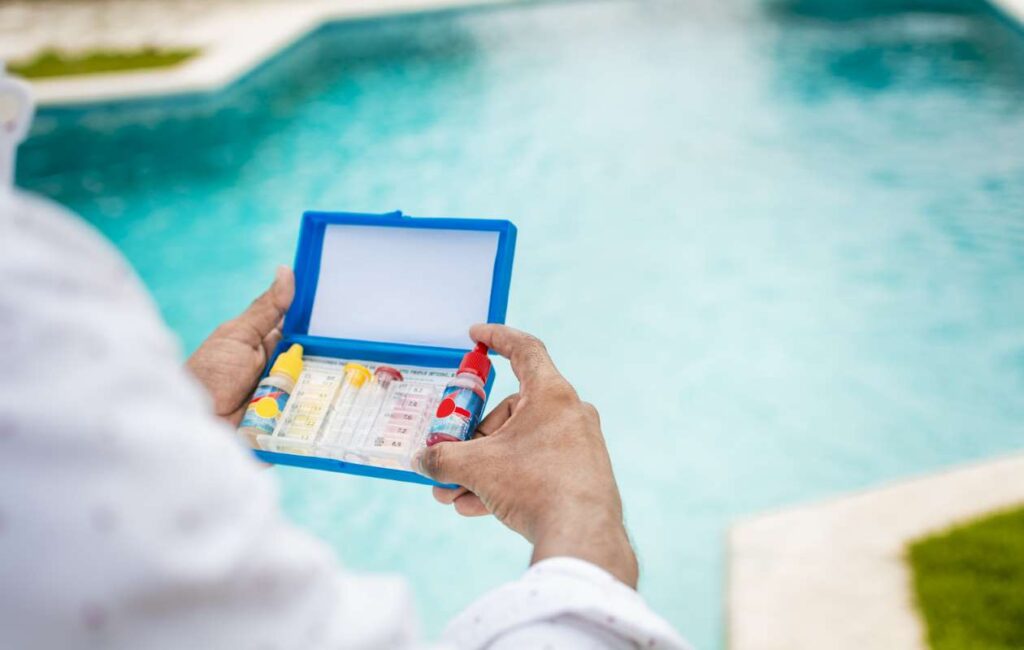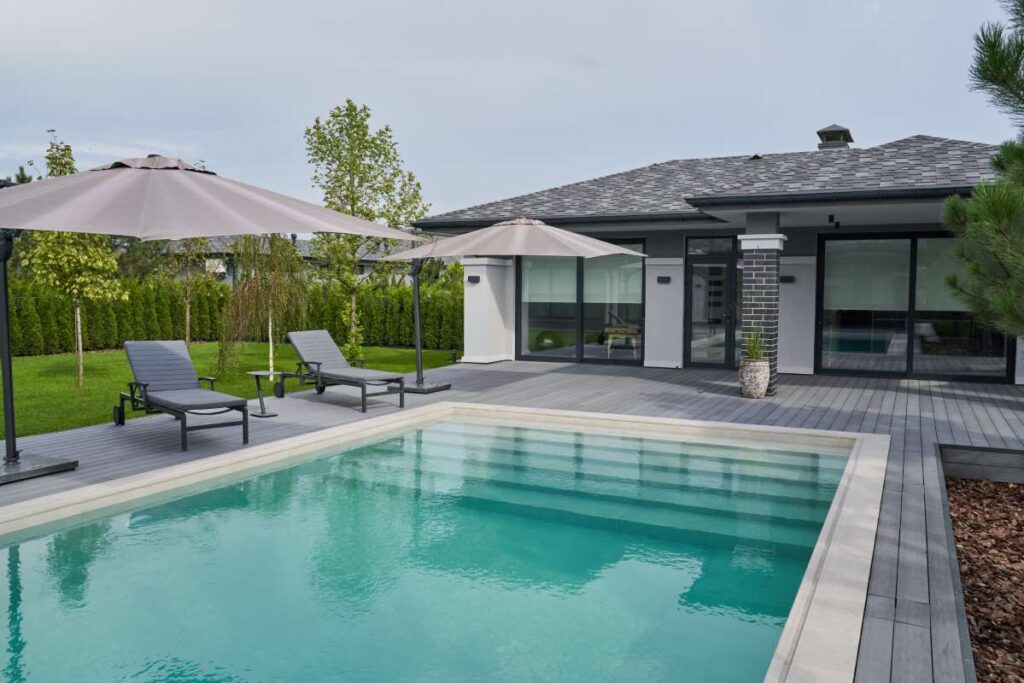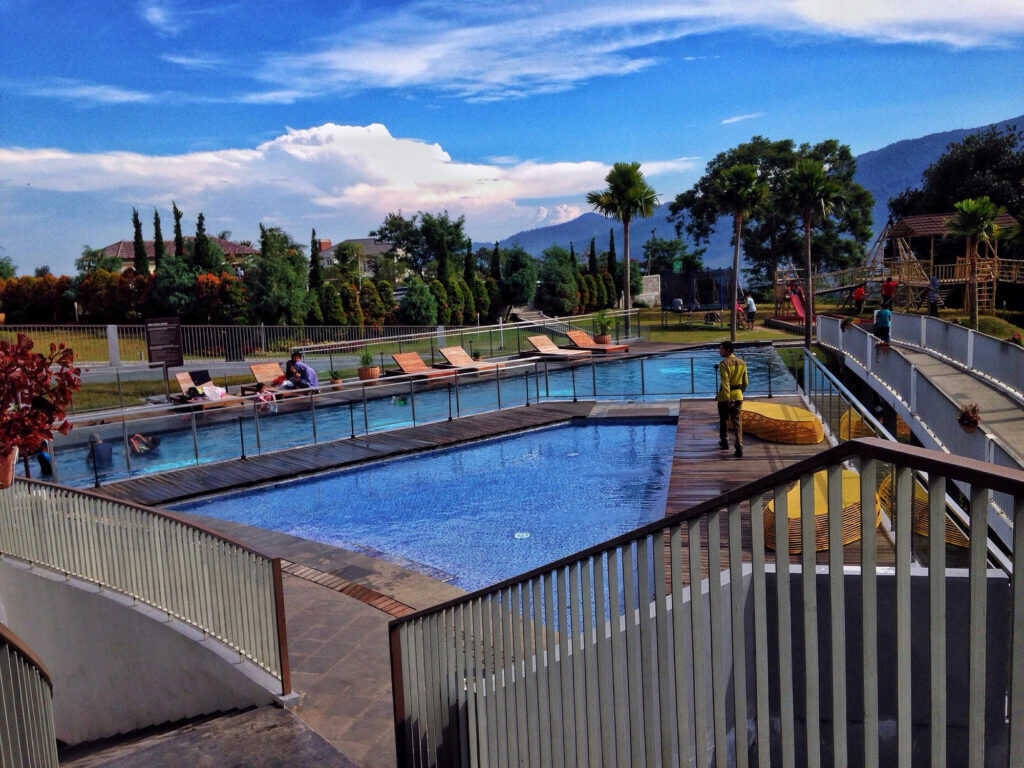Understanding water chemistry is a crucial part of effective pool maintenance. Learn why balancing chemicals is key to a clean, safe pool environment.
Understanding Water Chemistry: Key to Pool Maintenance
Water chemistry is at the heart of effective pool maintenance. To ensure a safe, clean, and inviting swimming pool, it’s essential to understand the chemical balance required for optimal water quality. This article explores the basics of pool water chemistry, why it matters, and how proper water balance can enhance your pool’s health and longevity. Whether you are a pool owner or someone looking to expand your pool service business, knowing the fundamentals of water chemistry will improve your maintenance routine and customer satisfaction.
Introduction
Water chemistry is often overlooked but is the foundation of pool care. Without proper chemical balance, your pool could become a breeding ground for bacteria, algae, and other harmful microorganisms. A properly balanced pool not only ensures the safety of swimmers but also extends the life of your pool equipment and saves money in the long run. In this article, we’ll dive into the key elements of water chemistry—pH, alkalinity, calcium hardness, and chlorine levels—and explain how to test, maintain, and adjust them for perfect pool conditions.
As a pool service provider, understanding these fundamentals is crucial for building a successful business. If you’re considering buying a pool route for sale in Florida, Texas, or California, this knowledge will help you provide superior service to your clients. Let’s explore the role of water chemistry in maintaining a healthy, sparkling pool.
pH Level: The Foundation of Pool Water Chemistry
One of the first things to consider when managing pool water chemistry is the pH level. The pH scale measures how acidic or alkaline your pool water is, with a range from 0 to 14. A pH of 7 is considered neutral, while a pH below 7 indicates acidic water, and above 7 indicates alkaline water. For pools, the ideal pH range is between 7.4 and 7.6.
Why pH Matters
Maintaining the correct pH is essential because it affects other chemical levels in the water. If the pH is too high or too low, it can lead to a number of problems:
- High pH can cause calcium buildup, which leads to cloudy water and scale formation on pool surfaces and equipment.
- Low pH can irritate swimmers' eyes and skin and corrode pool equipment.
How to Test pH
Testing your pool’s pH is simple and can be done using test strips or a liquid test kit. Aim to test the pH at least once a week during the pool season. If the pH is out of range, you can adjust it using pH increasers (soda ash) or pH decreasers (muriatic acid) depending on the direction you need to go.
For pool service professionals, regularly testing pH is part of the routine maintenance you’ll need to master. If you’re looking for pool routes for sale in Texas or other regions, knowing how to monitor pH levels ensures you can offer top-notch services to your clients.
Alkalinity: Buffering the pH Level
Another important chemical measurement in pool water is alkalinity. The total alkalinity (TA) refers to the water's ability to buffer changes in pH, acting as a stabilizer. The ideal alkalinity level in pool water should be between 80 and 120 ppm (parts per million).
Why Alkalinity Is Important
When alkalinity is too low, the pH levels can fluctuate rapidly, causing the water to become unstable. On the other hand, high alkalinity can cause the pH to drift upwards, making it difficult to adjust. Ensuring the right alkalinity level allows for easier control of pH and provides better overall water quality.
How to Test and Adjust Alkalinity
Test the total alkalinity with the same kit you use for pH testing. If the alkalinity is too low, you can add sodium bicarbonate (baking soda) to raise it. If it’s too high, muriatic acid or sodium bisulfate can lower it.
Maintaining proper alkalinity is a crucial part of maintaining a pool. It can also help pool service businesses deliver higher quality service by preventing unexpected swings in pH that could disrupt clients' pool environments.
Calcium Hardness: Preventing Staining and Scaling
Calcium hardness refers to the level of calcium dissolved in your pool water, and it’s an essential factor in maintaining the health of your pool’s surfaces and equipment. The ideal range for calcium hardness is between 200 and 400 ppm. Low calcium hardness can cause the pool water to become corrosive, leading to damage to the pool’s surface and equipment. On the other hand, high calcium levels can cause scale buildup, making the pool water cloudy and causing staining.
Why Calcium Hardness Matters
The primary concern with low calcium hardness is that it can cause the pool water to become corrosive, leading to deterioration of plaster, tile, and even pool heaters. On the flip side, high calcium hardness can lead to the formation of scale on pool walls and filters.
How to Test and Adjust Calcium Hardness
Testing calcium hardness is essential to maintain water balance. Use a calcium hardness test kit to measure the level in your pool. If the level is too low, you can add calcium chloride to raise it. If the hardness is too high, you may need to drain some water and refill the pool with fresh water.
As a pool service provider, ensuring your clients' pools are within the ideal calcium hardness range helps avoid expensive repairs and equipment malfunctions. If you’re considering pool routes for sale in Arizona or another state, mastering calcium hardness adjustments is a key skill in delivering excellent service.
Chlorine Levels: The Key to Sanitization
Chlorine is perhaps the most well-known pool chemical, and for good reason. It’s essential for disinfecting the pool water, killing bacteria, algae, and viruses. The ideal chlorine level in a pool is between 1 and 3 ppm.
Why Chlorine Levels Matter
Without enough chlorine, harmful microorganisms can thrive in pool water, leading to unsanitary conditions and potential health risks. However, too much chlorine can cause skin and eye irritation, and also damage pool equipment.
How to Test and Adjust Chlorine
Chlorine levels can be easily tested with test strips or a liquid test kit. If the chlorine level is too low, you can add chlorine tablets, liquid chlorine, or calcium hypochlorite. To reduce chlorine levels, you can dilute the pool water with fresh water or use a chlorine neutralizer.
Maintaining balanced chlorine levels is crucial not just for pool hygiene but also for ensuring a pleasant swimming experience. Pool service businesses that manage pool routes for sale in Nevada will find that chlorine management is one of their most requested services.
Pool Routes and Water Chemistry: A Key to Business Success
For pool service professionals, managing multiple accounts and ensuring each pool is properly balanced can be a challenging task. If you are looking to expand your pool service offerings, pool routes for sale in California can provide you with a fast track to a thriving business. With proper training, such as Pool Routes Training, you can master water chemistry and offer top-tier services to your clients.
The process of acquiring a pool route typically includes selecting your desired location and number of accounts, then receiving the accounts within a few weeks. With Superior Pool Routes offering unmatched training and support, you’ll be able to seamlessly integrate water chemistry management into your daily routine.
Conclusion
Understanding water chemistry is not just a technical skill—it’s an essential aspect of running a successful pool maintenance business. From adjusting pH and alkalinity to ensuring proper calcium hardness and chlorine levels, every pool owner and service provider must prioritize water chemistry for the best results. Whether you are maintaining a personal pool or managing multiple service accounts, having the knowledge and tools to balance these chemicals will ensure the longevity of the pool and its equipment, while keeping swimmers safe.
For those considering purchasing pool routes for sale, mastering water chemistry should be part of your core service offerings. Superior Pool Routes provides the resources and training necessary to help you become an expert in pool maintenance and grow your business.
Ready to dive into the pool service industry? Explore the many benefits of owning a pool route today and enhance your expertise with Superior Pool Routes Why Us.



